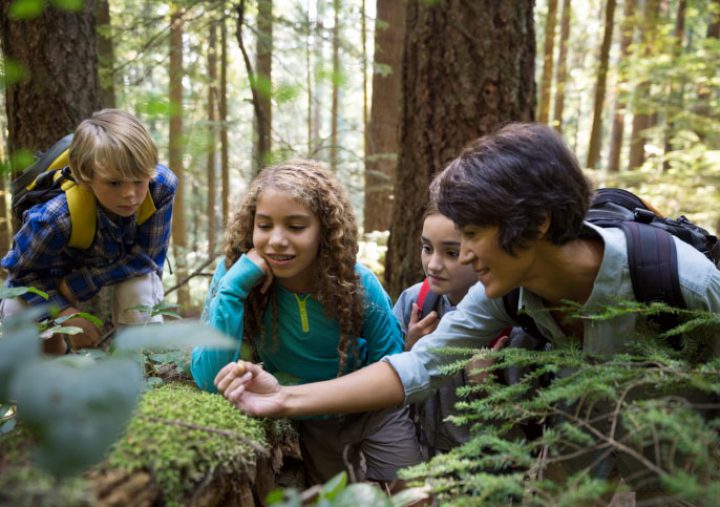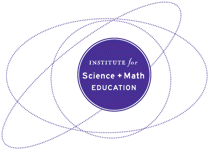Scientific literacy involves understanding global climate change & what people can do about it

Why It Matters To You
- Teachers should engage students in the analysis of multiple strands of authentic climate change data, including historic, current, and predictive datasets and models.
- District staff & PD providers should provide sustained PD opportunities that engage teachers in learning to teach about climate change from an interdisciplinary science perspective.
- School leaders and state-level policymakers should provide resources that help teachers focus instruction on contemporary climate change.
What is the Issue?
The complexities of climate change and its interdisciplinary nature can make it feel like a daunting teaching task. However, this complexity reflects the systemic nature of many of today’s environmental challenges—making it an ideal platform for implementing practice-based instruction focused on contemporary science in the classroom. The science and engineering practices of modeling, analyzing data, argumentation, and designing solutions should be a central focus of any climate change curriculum.
Authors:
BY VERONICA MCGOWAN - MAY 2015
Reflection Questions
- What particular aspects of climate change could be relevant to practice-based instruction in your classroom?
- Consider the claim from the NRC Framework: “It is clear not only that human activities play a major role in climate change but also that impacts of climate change...have begun to influence human activities.” How can this site help you engage students and community members with understanding this idea?
Things to Consider
- All young people are entitled to develop a scientific understanding of climate change and to know how engineering solutions can allow us to mitigate impacts, adapt practices, and build resilient systems.
- Climate change is an interdisciplinary science topic. Aspects of the topic can be taught in different science classes without losing the big picture ideas of systems thinking, managing uncertainty, and building arguments based on multiple lines of data. Here are examples of climate subsystem topics across different subjects:
Biology: Students can study how shifts in climate can disrupt ecosystems (LS2.C) and have and will continue to affect biological life cycles, called phenology. Phenological shifts and phenological mismatches are already being observed among plants and wildlife.
Chemistry: Students can study how ocean acidification results from the absorption of excess CO2 from the atmosphere in seawater and can have large-scale impacts on marine life. They can also study how climate changes impacts agriculture by reducing arable land.
Physics: Changes in atmospheric gas composition are already impacting the flow of energy and matter around Earth. Students can investigate how these shifts impact absorption and release of solar radiation and impacts of warming temperatures on ocean currents.
Earth Sciences: Geographic Information Systems (GIS) and computer models are major tools for modeling the impacts of climate change globally. Students can analyze existing models and create their own (e.g., in Google Maps). It is important for students to understand the carbon cycling process (see ESS2.E for details). - When arguing about climate change in the classroom, remind students that scientific arguments are supported by multiple lines of observed and modeled data, and not political opinions or untested assumptions. Allow students to engage with the social controversy by having them evaluate media and political arguments in light of the evidence given. Students can explore if speakers are using scientific evidence to support their claims.
Attending to Equity
- Global climate change has been impacting many communities in less to more severe ways for many years. It is a social imperative to respond to climate change within local communities and in general while recognizing that energy production is a major driver.
- Youth are likely to bring a range of perspectives to the study of climate change. Remember that shifting views around socially controversial issues can require deep identity shifts in students and should not be a required part of climate change learning.
Recommended Actions You Can Take
- Review the Global Climate Change Core Idea (ESS3.D) from the NRC Framework, this summary of the scientific literature, and this FAQ on climate change.
- Engage students in citizen science projects like the National Phenology Network. Also, engage students in the work associated with designing solutions to specific climate change problems.
- Have student develop arguments around multiple lines of evidence, including data from predictive climate models. This booklet and this site are useful resources.
- Use a systems-based approach to teach the large-scale cause and effect dynamics of climate change science. Causal-Loop Diagrams are a simple, paper-based way to incorporate systems thinking into any lesson for students of all ages.
ALSO SEE STEM TEACHING TOOLS
STEM Teaching Tools content copyright 2014-22 UW Institute for Science + Math Education. All rights reserved.
This site is primarily funded by the National Science Foundation (NSF) through Award #1920249 (previously through Awards #1238253 and #1854059). Opinions expressed are not those of any funding agency.
Work is licensed under a Creative Commons Attribution-ShareAlike 4.0 Unported License. Others may adapt with attribution. Funded by the National Science Foundation (NSF). Opinions expressed are not those of any funding agency.


 Email Feedback
Email Feedback


